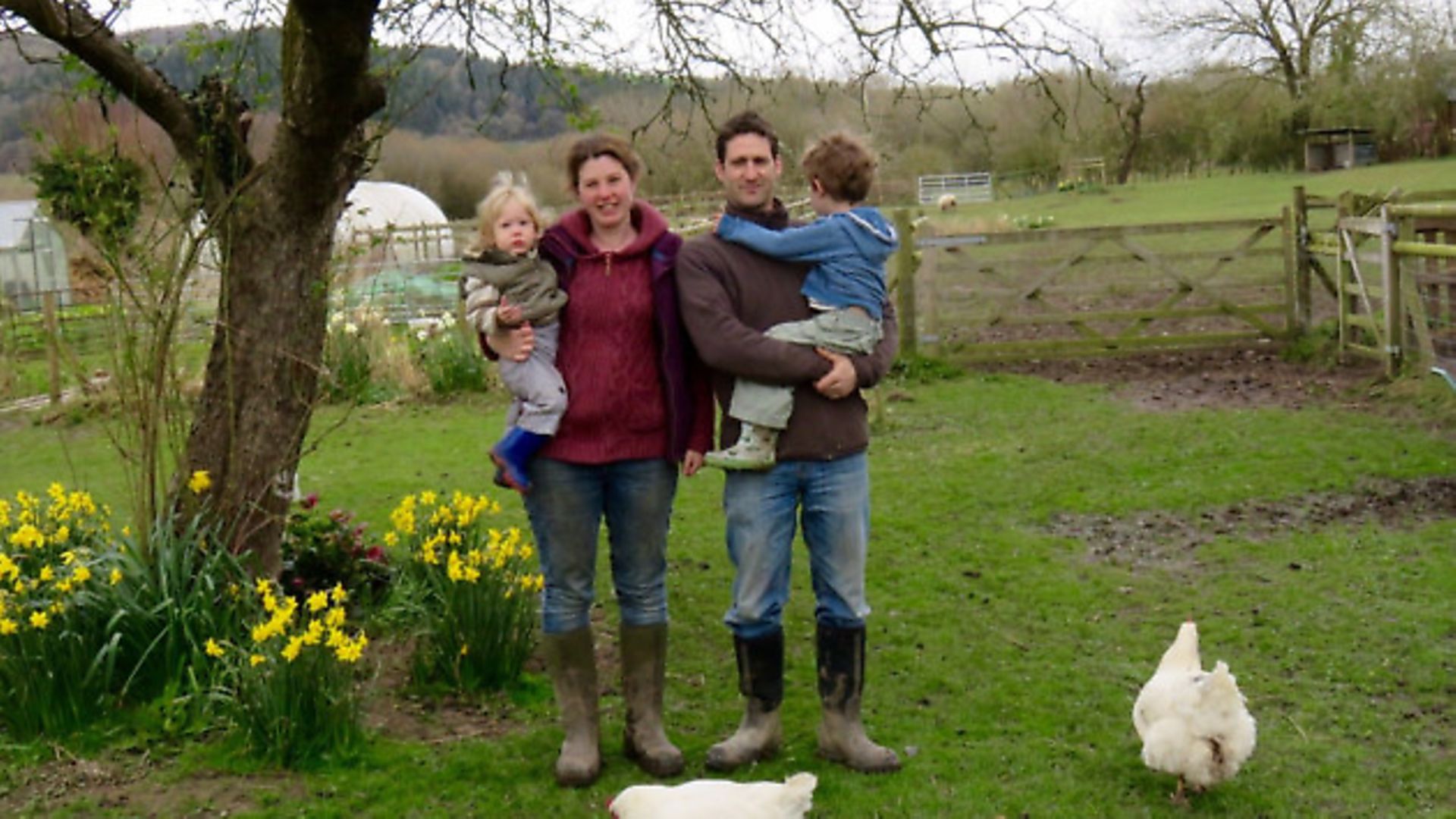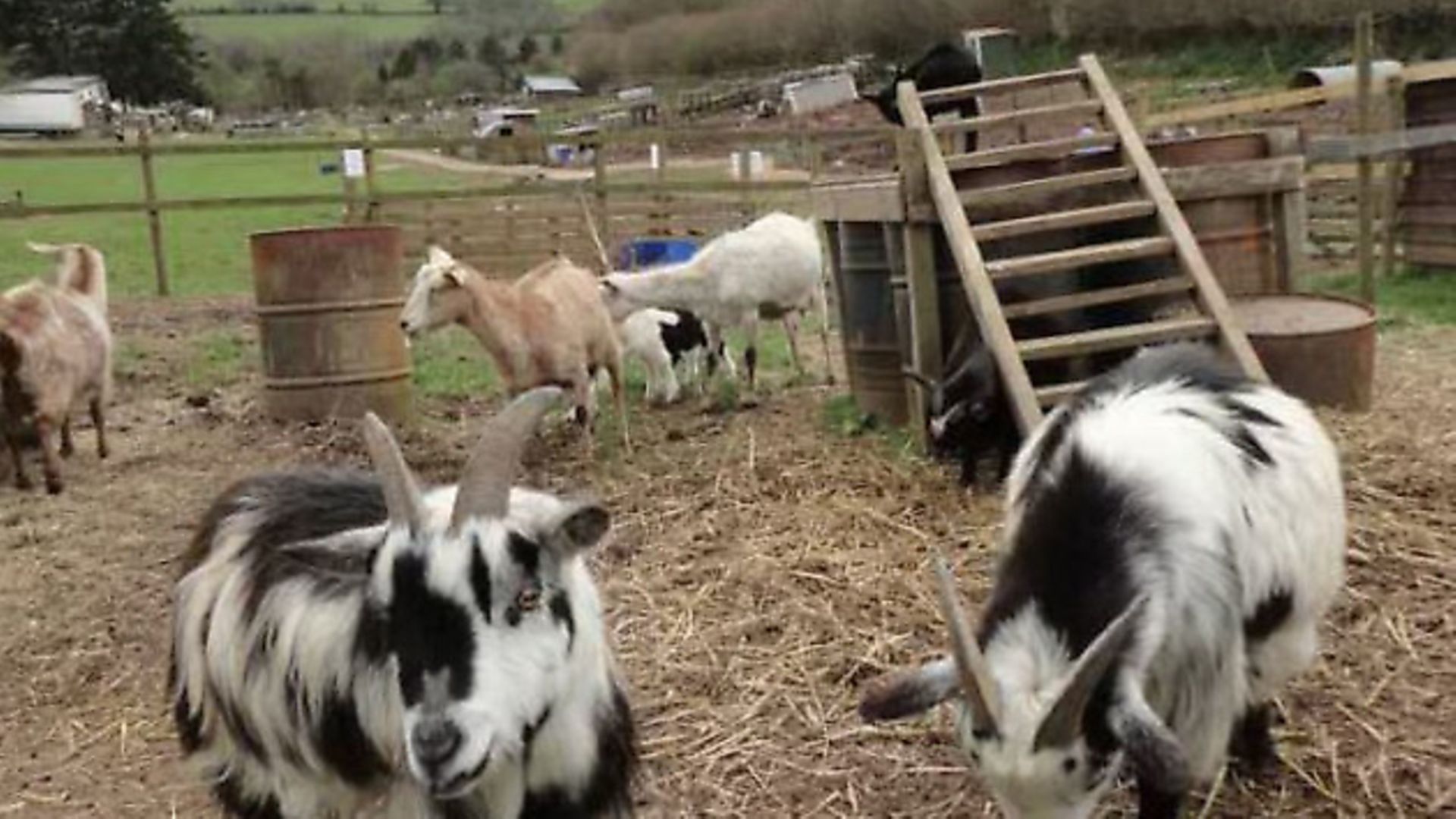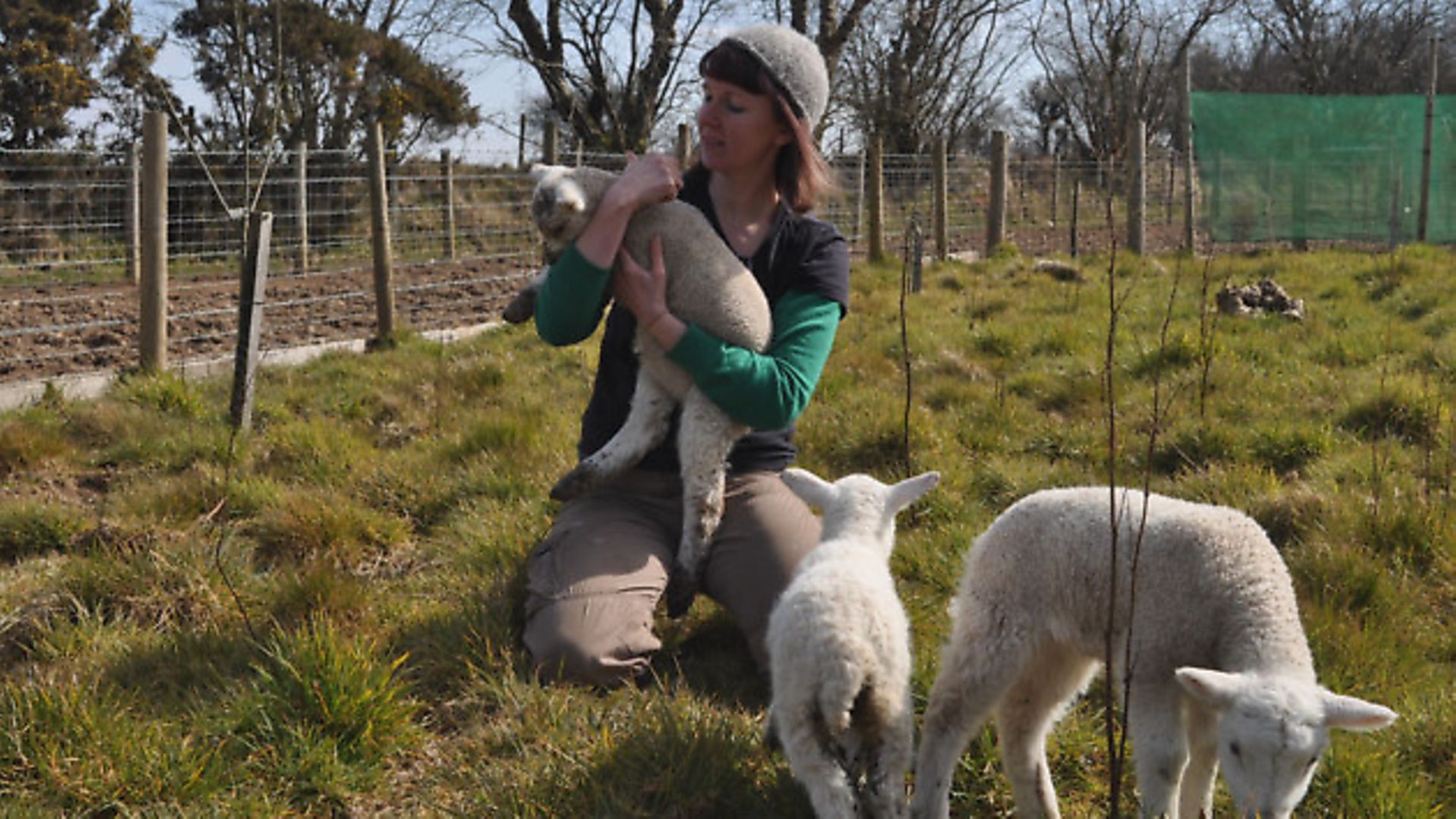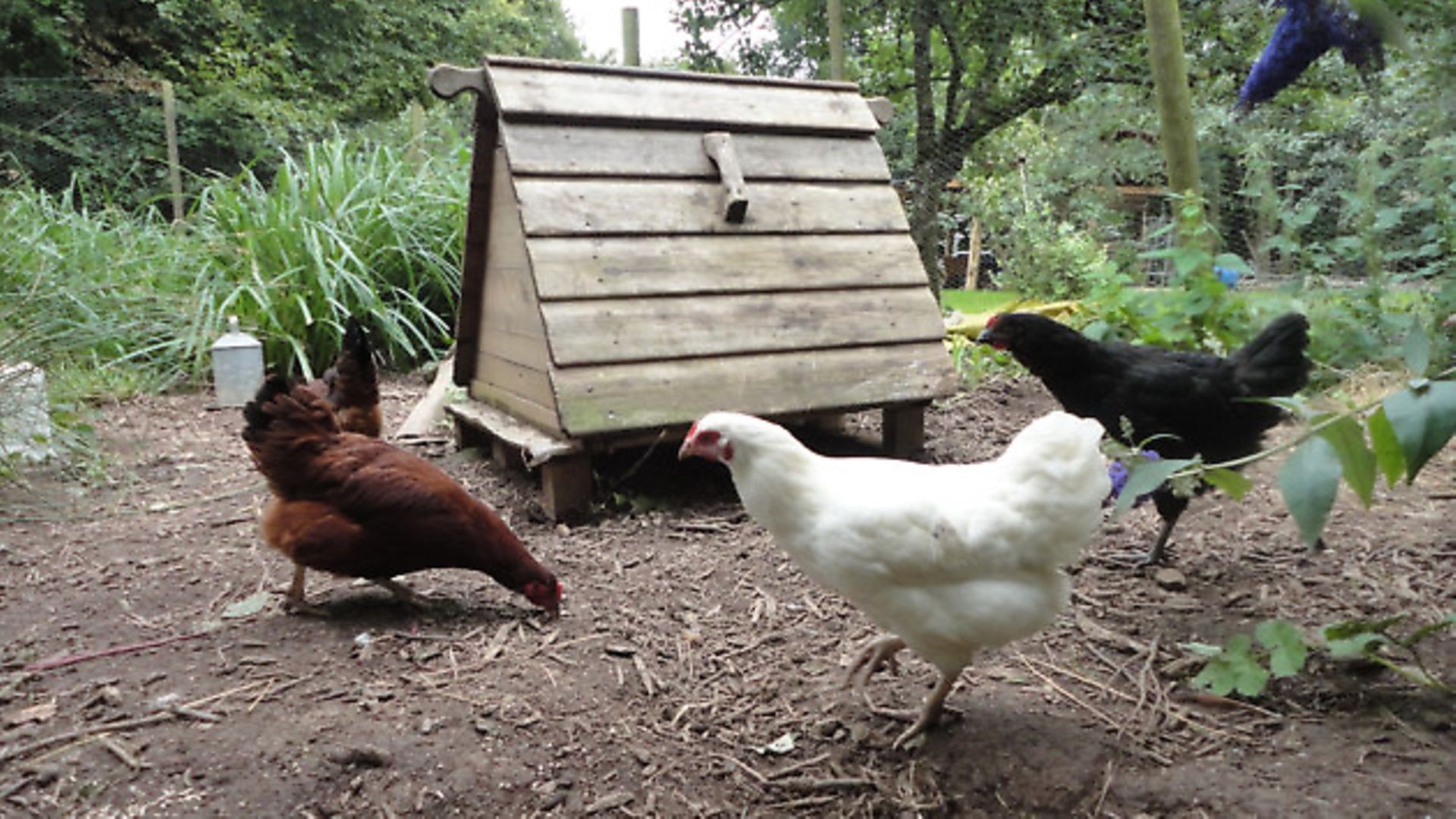What are five key factors for success in smallholding? We asked some of our writers and other smallholders.

If you are new to smallholding, you can save a huge amount of time, energy, stress and money by learning from others who have gone before you.
With this in mind, we asked a range of experienced smallholders across the country to distill their wisdom and each offer five factors which are the key to making a success of ‘the good life’. This is what they had to say:
Nina & Phil Baptiste, Crowkeld Rare Breed Smallholding
Kildwick, North Yorkshire
1. Have a plan that is realistic in terms of time and money.
2. Find a niche market in the area, but be prepared to change your plans if needed – we didn’t intend to have a rare breed flock when we set out but it works and we make money from it.
3. You need to be fit both physically and mentally; yoga helps for both and we have plenty of outside space in which to do it!
4. Recycle as much as you can – not only does it help to save the planet but it also saves you a lot money.

5. Enjoy it! When it’s raining, muddy and all going wrong, remember why you decided to do this in the first place …
info@crowkeld.co.uk
Dot & Brian Jackson, Pembrokeshire
1. Concentrate first on your home – making it a nice place to come back to:
This is advice we were given and sadly ignored. We spent the first years on the land and converting outbuildings into holiday cottages and largely ignored our own home. Only now, as we grow older, have we concentrated on converting the house.
2. Natural growing.
You can grow without chemicals and pesticides and you will feel better about the land and your health. We delight in all the wild flowers, especially the orchids that have grown in our traditional hay meadows.
3. Invest in a good size polytunnel.

Extend the season in this way and you can grow crops you otherwise would not be able to.
4. Find out the wind direction and plant trees as a windbreak.
We have planted around 4,000 native broad leaf trees as whips around the field edges, so helping to encourage biodiversity and doing a little towards mitigating the effects of climate change.
5. Involve the local community and ask for help when needed.
Join your local smallholder and gardening groups. Also the transition movement. Learning days with friends are fun.

Graham Eggins, Scilly Isles
1. Diversity.
Grow and produce a wide variety of produce. Each growing year is different, weather conditions, plant rotation, animal health, etc, and what does well one year may not thrive another.
2. Record keeping.
If you want it to be a success as a business, keep an eye on those figures and to refer back to the following year. Also, keeping a record of when you planted seeds, what grew well and what didn’t, animal health and management, is vital to keeping the smallholding running smoothly, efficiently and legal.
3. Attitude: be positive!
Plants may not grow or get eaten, livestock may die but you must just put it down to experience, learn from it and move on.
4.Educate yourselves.
Read up on new challenges, research new ideas and listen to others with experience.
5.Be passionate!
Love being outdoors, being with the animals and growing amazing produce.
Hannah Allen, Hannah’s Herbs
Powys/Herefordshire border
1. Start small.
It’s tempting to try lots of different projects that require time, energy and money. Just focus on one or two projects a year, such as creating a vegetable garden or keeping bees.
2. Flexibility.
It takes at least a year to get to know your soil and climate. Be flexible and work with what you’ve got.
3. Get to know your local farmers, smallholders, agricultural merchants and vets.
It takes time to integrate into the local farming community, but if you’re upfront about being a newbie most people are willing to offer help and advice.
4. Grow a thick skin.
Mistakes will be made, do your best to learn from them. You will probably be your harshest critic.
5. Enjoy what you’re doing.
Smallholding is hard work physically, and often emotionally. You have to enjoy the majority of your daily tasks, whether that’s mucking out or milking.
Kim Stoddart, West Wales
1. Get to know your neighbours.
Make a real effort to blend into your local community and you’ll settle in a lot quicker than you might do otherwise.
2. Know your own mind.
Remember the reasons you wanted to become a smallholder and always keep that vision in mind on your journey ahead. Please don’t get put off if you encounter negativity or differing views. It’s important to the success and personal satisfaction of your smallholding life if you make it in your own way.
3. If there’s a will, there’s a way.
However you want your smallholding life to pan out – knowing what it is you want to do is often half the battle. Then it’s just a case of making it happen in one way or another and the more you can speak to other smallholders doing similar things the better.
4. Small is beautiful.
Whatever livestock you decide to keep – start small at first as you get to know your land and animals.
5. Be prepared for climate change.
Kim Stoddart is a regular contributor to Country Smallholding and also blogs at www.getbadlybehaved.com
Nicola Hacking, Carmalthenshire
1. Good fencing.
Unless you like lying in a puddle of slurry at 6am, wearing just your pyjamas and crocs, and clutching a screaming piglet whilst next door’s bullocks charge at you, invest in good fencing. It’s well worth the cost in both potential losses… and sanity.
2. Local community links.
Smallholding can be incredibly isolating. It’s a 24/7 job, with little pay, and harsh realities. Sharing resources, contacts and cups of tea (wine) makes all the difference.
3. Good waterproofs.
Turns out trench foot in your shoulders is possible.
4. A strong sense of humour/stomach.
Endless poo, afterbirth and maggots are amongst some of the horrendous things that you’ll have to laugh off.
5.A great right hand man.
My sheepdog. No matter the weather, time of night, or hours he’s already worked, he’s always there to keep me warm whilst lambing, deal with ‘that’ ewe, and ensure I’m never struggling alone.
Alan Beat, North Devon
1. Open mindedness – a willingness to learn from the experience of others before you have much (or any) of your own to guide you.
2. A shared commitment with your spouse/partner to take on the change of lifestyle – successful smallholding requires teamwork.
3. A realistic financial plan for the early years – or it simply won’t work.
4. Some preparation in the form of training courses and hands-on experience before taking the plunge into smallholding – or time and money will be wasted on avoidable mistakes.
5. A sense of humour – including (especially) the ability to laugh at yourself!
Alan Beat has written for Country Smallholding for more than 20 years and has written two smallholding books. www.thebridgemill.org.uk
Debbie Kingsley, North Devon
Most of my key success factors apply as much to life as smallholding:
1. A positive can-do attitude; seeing an opportunity and making the most of it, not being fazed by unforeseen challenges, being happy to learn lots of new things, enjoying having a go at something you’ve never done before.
2. Having a fascination, a real abiding interest in your chosen smallholding pursuits, whether that be shepherding, dairying, veg growing, chicken keeping or any of the many activities undertaken by smallholders. Which leads on to…
3. Being versatile, a multi-tasker, able to do many things that require a wide range of skills, and becoming as expert as you can in each area. From diagnostician to midwife, cook to labourer, fencer to agronomist… and more
4. If you can’t buy or rent it, finding a way to access usable land, although a lot can be done in a large garden.
5. Having an armoury of critical kit including: wellies, wheelbarrow and a robust washing machine.
Debbie Kingsley writes for Country Smallholding and runs courses. www.southyeofarmwest.co.uk
Liz Shankland, Carmathenshire, West Wales
1. Decide WHY you want a smallholding. Do you really want to start your own business, with all the hard work and complications that come with it? You may be better off keeping your existing day jobs and treating your smallholding as a hobby.
2. Think about what you want to do, what you want to grow or produce, and where you will sell it. Too many people make the mistake of producing food and then wondering where to find the customers.
3. Choose the right location. Think about the catchment area and whether the locals would be prepared to pay a premium for good food.
4. Don’t underestimate how much land you might need. If things go well, you may want to expand, so don’t be too seduced by a pretty house with only a small amount of land. You may not be able to buy more later on.
5. Make sure that, if you’re in a relationship, you are both equally committed to the idea. Long days filled with hard work, combined with little disposable income and peppered with a bit of resentment – the perfect recipe for disaster.
Liz Shankland writes for Country Smallholding and is author of the Haynes Smallholding Manual and the Haynes Pig Manual. www.biggingerpigs.com
Sally Morgan, Somerset
1. Learn from your mistakes (we all make them) and don’t be afraid to ask for help.
2. Make good use of your time. Try getting up one hour early in summer – it’s surprising how much you can achieve with that extra hour a day.
3. Lifelong learning. You never stop learning as a smallholder. Go on courses, attend conferences and read widely to improve your skill levels.
4. Don’t commit to too much too soon – start with a couple of enterprises that don’t involve a lot of investment and see if you can cope before buying in expensive stock and equipment.
5. Take a break – running a busy smallholding while holding down a job can be overwhelming so it’s important to find time to get away, if only for day.
Sally Morgan writes for Country Smallholding and runs courses. She is also author of Growing on One Acre or Less. www.empirefarm.co.uk
Tim Tyne, Gwynedd, Wales
1. When considering what livestock breeds to keep, first think about what is your intended end product – this may be meat for the freezer or for sale, milk, fibre, pedigree animals for showing etc. Next decide upon a management system which will achieve the desired outcome, and finally choose a breed to fit that system. Don’t do it the other way around.
2. When constructing new agricultural buildings, or adapting old ones, always aim for versatility in the layout so that the space can be used for a whole range of different activities at various times of year.
3. Always keep records of both the physical performance of your various enterprises (e.g., crop yields, number of eggs laid, weight of lambs etc) and the financial aspects. As part of this you should record all non-cash transactions. This would include produce taken out of the business for home consumption, and also transfers between enterprises (such as surplus milk from your cows used to feed your pigs). Only by doing this can you be sure what’s successful and what isn’t.
4. Don’t carry passengers.
5. You must have the support of your family. Without this you are doomed to failure!
Tim Tyne writes for Country Smallholding and is a lifelong smallholder. He and his wife Dot have just published Viable Self-Sufficiency, an acclaimed guidebook. www.viableselfsufficiency.co.uk
WHAT ARE YOUR VIEWS? Email us at editorial.csh@archant.co.uk and put Five Factors on the subject line
Image(s) provided by:
Archant
Archant
Archant
Archant







